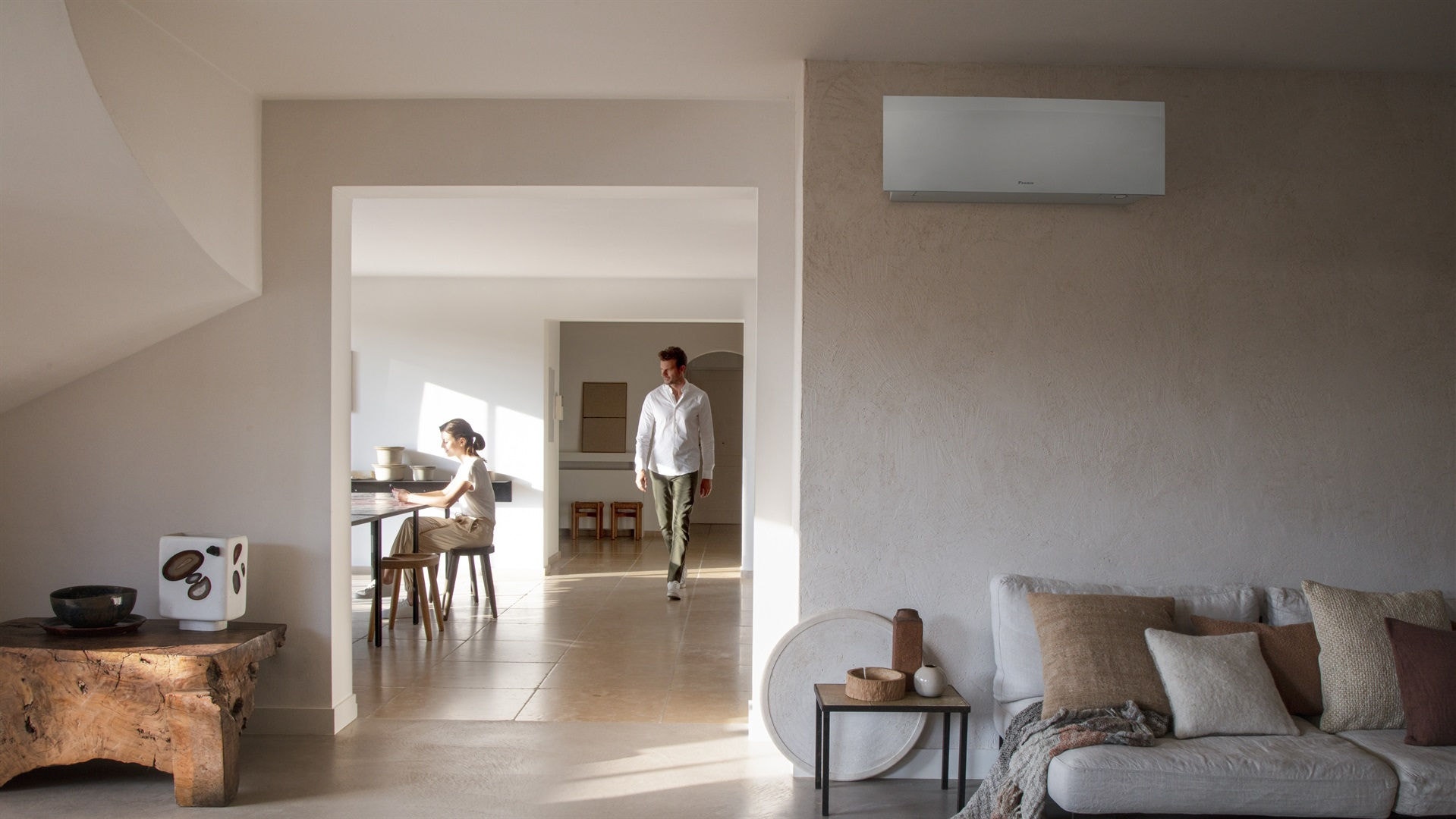Renovate or repair: how to know if your air conditioner needs replacing
Is your air conditioning system ready for another summer, or is it time to replace it? Here are the key points to help you make the most cost-effective decision.

As summer approaches, it's time to turn on the air conditioner again to combat the high temperatures. Your appliance has been with you for years, protecting you from excessive heat. Will it continue to work like last year? Time to repair your air conditioning system, or maybe replace it? This decision directly affects your comfort and your finances. That's why today we're going to analyse the key points for making the right choice.
Signs that your air conditioning system needs replacing
Before delving into the factors that may indicate it's time to replace your air conditioning system, it's vital to understand that this replacement can make a big difference not only to your quality of life, but also to your home's energy performance and economy.
Below is a carefully selected list of key indicators to help you recognise when it's time to say goodbye to your old air conditioning system and invest in a new one:
Decreasing efficiency: If your energy bill has increased significantly without a notable change in use, it could indicate that the air conditioning system is becoming less efficient. Cooling the room takes more time, requiring the system to run for much longer to reach the desired temperature.
Repair frequency: An increase in the need for repairs can be a sign that the equipment is reaching the end of its life. Replacing it could be more cost effective in the long run. Think about it: How much money have you invested, hoping it would work as before, only to see no results?
Poor performance: When the air conditioning system fails to cool the space adequately or has irregular cycles, it may be time to consider replacing it.
Age: Most air conditioning systems have a lifespan of between 10 and 15 years. If yours is in this range or older, it might be worth considering more modern, efficient options.

Cost of replacing the air conditioning system
The cost of replacing an air conditioning system can vary widely depending on several factors, including the type of system (central, split, portable), brand, required cooling capacity, and complexity of installation. Replacing the air conditioner involves replacing both the indoor and outdoor units.
In addition to the initial cost, it is crucial to consider long-term cost effectiveness. One notable example is the heat pump system, a climate control system renowned for its high efficiency.
This article explains the difference between heat pump and air conditioning systems. Spoiler alert: In Daikin's case, both solutions are basically the same. Daikin's heat pump and air conditioning systems are both based on the same heat pump technology and offer the same advantages in terms of comfort and energy savings. In other words, Daikin's air conditioning systems work using heat pump technology.
Heat pump systems use minimal electricity, as they obtain 75% of the required energy from the air for free. While this system demands a significant initial investment, experts indicate that the installation costs could be recouped in around four years thanks to savings on energy bills.
If we also consider that the estimated lifespan of heat pump systems ranges between 15 and 20 years, then these calculations are very favourable for our finances. In short, while the initial investment is higher, heat pump systems offer energy efficiency and durability, making them an economically viable and sustainable long-term option for climate control at home.
Lifespan of an air conditioning system
An air conditioning system typically lasts between 10 and 15 years. However, this timeframe can vary depending on factors such as installation quality, regular maintenance, and usage frequency and mode. Proper maintenance includes regularly cleaning the filters, checking the refrigerant, and having the system inspected by a professional at least once a year.
Replacing your air conditioning system is a significant decision that impacts both your comfort and your budget. Recognising the indicators of an inefficient system, understanding the costs associated with replacing it, and maximising its lifespan through proper maintenance are key steps to making an informed decision.
And remember: when choosing a new system, prioritise energy efficiency and sustainability to ensure a more comfortable and cost-effective future for your home or business.

